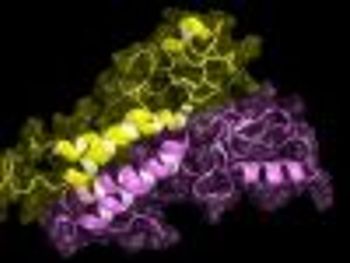
Exposure to benzene due to high traffic volume during childhood may contribute to disease development.

Exposure to benzene due to high traffic volume during childhood may contribute to disease development.

Ebola and AIDS spread rapidly in areas with poor health care systems.

Opdivo was previously approved for patients with squamous NSCLC whose disease progressed during or after platinum-based chemotherapy.

The FH Foundation helps guide patients on their journey to battle a silent killer.

Several genetic characteristics of more aggressive tumors significantly more prevalent in the African American community.

Roflumilast normally treats inflammatory lung diseases, but was found to dramatically inhibit tumor growth.

Contaminated dairy and beef with bovine leukemia virus may contribute to cancer development.

Health information sharing web site helps connect patients among more than 2500 conditions.

Tecfidera reduces annualized MS relapse rate by 63% compared with placebo.

Vaginal rings show promise for administering medication and preventing the spread of sexual transmitted infections.

Study findings may change the development of cancer therapy.

FOXC1 gene is needed to turn cells into specialized tissues such as the eyes, kidney, brain, and bone.

Medical Marijuana Advocates Group helps patients access care through programs that lower the cost of seeing a physician.

Study finds that drop in support for health care spending is attributable to the Affordable Care Act, not the recession.

Study examines the potential impact from GLP-1 agonists, or incretin mimetics to treat diabetes.

Ex-vivo lung perfusion keeps the lung alive, breathing outside the body and supported by a supply of blood and nutrients.

Shortened telomere length may help inhibit cancer, but it is also associated with the progression of aging in humans.

Inhibiting the protein PARP 14 shows promise in stopping uncontrolled cancer cell growth.

HDACi shows promise as a latency reversal component to purge HIV reservoirs.

Research may lead to targeted therapies with reduced side effects.

Cladribine was previously denied market authorization on the suspicion that it may cause cancer.

Study finds inhibition of the NOTCH4 signal may be a promising target to prevent the growth and spread of cancer.

Novel method may reduce the length of treatment time and decrease side effects.

Medication therapy management could improve health care outcomes for patients and lower overall costs.

Keytruda treats patients with metastatic non-small cell lung cancer whose disease has progressed despite other treatment methods.

Therapy with binimetinib and ribociclib shows significant clinical activity in NRAS-mutant melanoma patients.

Viral induction greater than any other latency reversing agent.

Economic development and urbanization factors influence cancer incidence growth.

New therapeutic target may decrease breast cancer risk.
